The truth about police cuts
The Week looks at the facts and figures amid warnings from police chiefs
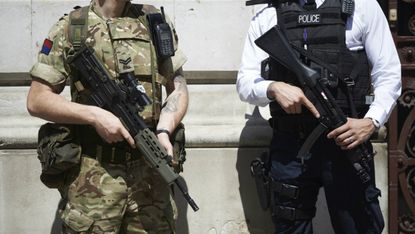
Government cuts to policing have left forces without the means to respond to terrorist attacks, according to the Police Federation.
Police chiefs have long warned of a shortage of resources and officers, but the Home Office insists they have "all the tools they need" to deal with the heightened terror threat. So what are the facts?
What do the police say?
Subscribe to The Week
Escape your echo chamber. Get the facts behind the news, plus analysis from multiple perspectives.

Sign up for The Week's Free Newsletters
From our morning news briefing to a weekly Good News Newsletter, get the best of The Week delivered directly to your inbox.
From our morning news briefing to a weekly Good News Newsletter, get the best of The Week delivered directly to your inbox.
Police welcomed Theresa May's decision to activate Operation Temperer to deploy hundreds of armed soldiers to assist officers at key locations after the terror threat level was raised to critical after the Manchester terror attack.
Steve White, Chair of the Police Federation of England and Wales, said that the involvement of military personnel would help free up armed police officers and reassure the public.
"But, as welcome as this is, we cannot avoid the reasons it is needed at all," he said. "There is no ignoring the fact that we, the police, simply do not have the resources to manage an event like this on our own."
What do politicians say?
Manchester mayor Andy Burnham, who has been a vocal critic of Conservative cuts to policing, called for a broader discussion about police resourcing going forward, reports The Sun.
But Home Secretary Amber Rudd insisted that UK police "have all the tools they need" to carry out their duties. "She added that while the armed forces would 'backfill' for the police, this was an established process and did not indicate a shortage of officers," the Financial Times reports.
Rudd did, however, promise to take "a look to see if there are any lessons to be learned".
Are there fewer bobbies on the beat?
According to Home Office statistics cited in the NewStatesman in 2015, 17,000 officers were cut between 2010 and 2015 as part of the coalition government's large-scale budget cuts.
Despite a promise by then Home Secretary May that "cuts can be taken without affecting frontline policing," 12,000 of those who lost their jobs were described as frontline police officers.
These were undeniably very significant cuts, but they need to be placed in longer-term perspective, says Tim Newburn, Professor of Criminology and Social Policy at the London School of Economics.
"The very significant increases in both police budgets and numbers that took place under the previous Labour administrations mean that both officer and overall workforce numbers are now back roughly at the levels they were between 2001 and 2003," he wrote for the BBC in 2015.
However, since then, a further 3,000 police officers have lost their jobs, bringing the total to roughly 20,000.
The Sun reports that 1,337 trained firearms officers have been slashed in England and Wales between 2010 and last year. After the Manchester attack, May deployed 984 soldiers onto Britain's streets.
Who's right?
Despite assurances from the Home Office, it is clear that budget cuts have affected frontline policing. By sending in the military, May's government is perhaps admitting as much.
Create an account with the same email registered to your subscription to unlock access.
Sign up for Today's Best Articles in your inbox
A free daily email with the biggest news stories of the day – and the best features from TheWeek.com
-
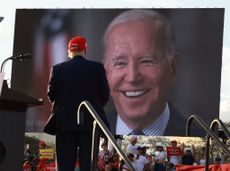 'Voters know Biden and Trump all too well'
'Voters know Biden and Trump all too well'Instant Opinion Opinion, comment and editorials of the day
By Harold Maass, The Week US Published
-
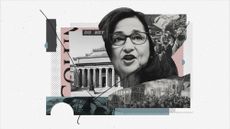 Is the Gaza war tearing US university campuses apart?
Is the Gaza war tearing US university campuses apart?Today's Big Question Protests at Columbia University, other institutions, pit free speech against student safety
By Joel Mathis, The Week US Published
-
 DOJ settles with Nassar victims for $138M
DOJ settles with Nassar victims for $138MSpeed Read The settlement includes 139 sexual abuse victims of the former USA Gymnastics doctor
By Justin Klawans, The Week US Published
-
 Will Aukus pact survive a second Trump presidency?
Will Aukus pact survive a second Trump presidency?Today's Big Question US, UK and Australia seek to expand 'game-changer' defence partnership ahead of Republican's possible return to White House
By Sorcha Bradley, The Week UK Published
-
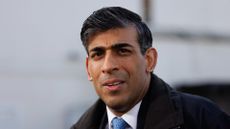 It's the economy, Sunak: has 'Rishession' halted Tory fightback?
It's the economy, Sunak: has 'Rishession' halted Tory fightback?Today's Big Question PM's pledge to deliver economic growth is 'in tatters' as stagnation and falling living standards threaten Tory election wipeout
By Harriet Marsden, The Week UK Published
-
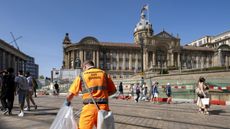 Why your local council may be going bust
Why your local council may be going bustThe Explainer Across England, local councils are suffering from grave financial problems
By The Week UK Published
-
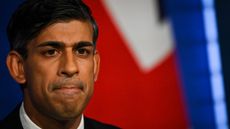 Rishi Sunak and the right-wing press: heading for divorce?
Rishi Sunak and the right-wing press: heading for divorce?Talking Point The Telegraph launches 'assault' on PM just as many Tory MPs are contemplating losing their seats
By Keumars Afifi-Sabet, The Week UK Published
-
 How would a second Trump presidency affect Britain?
How would a second Trump presidency affect Britain?Today's Big Question Re-election of Republican frontrunner could threaten UK security, warns former head of secret service
By Harriet Marsden, The Week UK Published
-
 'Rwanda plan is less a deterrent and more a bluff'
'Rwanda plan is less a deterrent and more a bluff'Instant Opinion Opinion, comment and editorials of the day
By The Week UK Published
-
 How the biggest election year in history might play out
How the biggest election year in history might play outThe Explainer Votes in world's biggest democracies, as well as its most 'despotic' and 'stressed' countries, face threats of violence and suppression
By Harriet Marsden, The Week UK Published
-
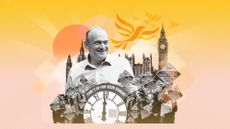 Lib Dems in 2024: on cusp of electoral breakthrough?
Lib Dems in 2024: on cusp of electoral breakthrough?Talking Point Anti-Conservative sentiment could see Ed Davey's party winning '30 to 40 seats' at next election
By Sorcha Bradley, The Week UK Published